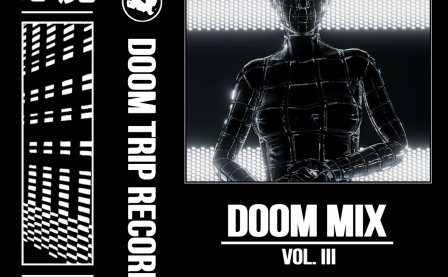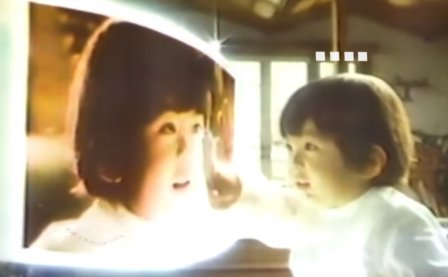Although there is already an obituary for vaporwave, that hasn’t seemed to stop those pioneering few from venturing into the digitally refined frontier of the consumer pop plaza. In the past year, we’ve seen the retirement of New Dreams Ltd., only to have her drop this gem and then eventually rise from the flames entirely in the form of PrismCorp Virtual Enterprises with another set of releases. We’ve also seen the return of both 骨架的 and Computer Dreams/Midnight Television (as Computer Slime), who were releasing vaporwave albums back in 2011, as well as a notable upsurge in new artists from the far reaches of the internet, including coolmemoryz, Infinity Frequencies, Luxury Elite, 회사AUTO, miami vice, ESPRIT 空想:, Tres Monitores, b o d y l i n e, and ショッピングワールドjp, among many, many others. Hell, there was even a festival of sorts for vaporwave artists at the beginning of the month. All signs pointed to its demise last year, yet vaporwave has continued on, with releases ranging from the uninspired to the highly engrossing.
Nmesh’s new release, Nu.wav Hallucinations, is among the latter. Former drummer for a number of hardcore and metal bands, Alex Koenig has been making electronic music under the pseudonym Nmesh (pronounced “mesh”) for over a decade. His releases are as varied as they are numerous. From breakbeat releases and minimal trance mixes to ambient and IDM, Nmesh has a penchant for electronic styles in seemingly any form, and vaporwave is the most recent of his obsessions. This is good, because not only is Nu.wav Hallucinations a great study in the style, but it’s also an excellent example of how the technique of vaporwave, while fairly consistent in itself, can be interpreted and utilized uniquely by different artists and thus constantly refines its own definition and use.
Nmesh has a few different modus operandi on Nu.wav Hullicinations, the first of which is the Macintosh Plus-/Mediafired-inspired 80s and 90s pop re-imaginings; the second is the more corporate stock music pastiche of 情報デスクVIRTUAL, and finally there is the VHS tape collage (minus the video of course) reminiscent of recent Everything is Terrible releases and some tracks by The Books. At points, all three of these techniques coalesce, almost as if the listener were in a spacecraft 20 light years from Gaia, where the radio and TV frequencies from Earth’s not-so-recent past all converge on a single receiver attempting to play every channel simultaneously. The first track, “THΞ GΘΘSΞ IS LΘΘSΞ,” epitomizes this strange ambiance, as bits of Berlin’s “Take My Breath Away” mix with samples from the Tom Cruise fighter pilot film that made it such an iconic song. As the album continues, samples from 80s and 90s pop hits that include Billy Idol, Frankie Goes to Hollywood, Soul II Soul, and Cathy Dennis songs introduce a heavy nostalgic mode, which makes the insertion of candy/Barbie commercials excerpts and Super Nintendo sounds seem to organically flow out of the haze of childhood memory.
Besides attempting to return the listener to some sort of nascent, pre-cognitive state through these playful samples, Nmesh also presents a heavy psychedelia element on Nu.wav Hallucinations. He includes the sampled quote, “My grandmother dropped acid… freaked out… hijacked a school bus… full of… penguins,” from the movie Better Off Dead, along with a sample from the infamous “This is Your Brain on Drugs” campaign; just two of the many examples that show he is making a more direct connection to drug culture than 情報デスクVIRTUAL ever did (see: “WELCOME 2 SHOP@HOME NETW☯RK LLC #WEEDBREAK #ROLL_UP_THEM_BLUNTS_FOR_2K12”). Instead of giving the album a flippancy, these drug references provide for a rich reading of the album. Like those artists who have come before him, Nmesh is relying on the oversaturation of consumerism and the loss of distinction between background and foreground music in order to make a new sort of music that refuses to be either; it has already been consumed and it is already known, yet through distortion and recapitulation, it moves into the unknown and even into the uncanny. The music is, in a sense, taking the listener on a psychedelic journey through the known environment of popular culture, yet it’s also allowing us to hear new aspects by morphing and reworking these familiar landscapes, in the same way LSD or mushrooms distort the perceptual reality of the user. This is exemplified in some of the later tracks in the record, particularly “Even Though I Tried (I Can’t Break Free)” and “I Got Your Letter.” The first is a reworking of Mariah Carey’s 1991 hit “Can’t Let Go,” turning the pop superstar’s song of lost love into a haunting ode to a loss of all desire or maybe to the loss of identity itself. The second, originally a one-hit wonder called “Because I Love You (The Postman Song)” from Stevie B, transforms the original’s confession of love into a beautifully trite expression of internet romance.
So is vaporwave really dead? I don’t know. If I were to base its life on Last.fm or Bandcamp tags, then my answer would be a definitive no. And when I search the bowels of the internet, I can still find pockets holding free zip files full of MP3 goodness that certainly resemble something like the early vaporwave that was available last summer. But, as was predicted, things have changed a bit. Not that there ever was a clear notion of what a vaporwave record was, but it seems that now the definition is more multifarious than ever. Consider the last SAINT PEPSI release vs. this last Infinity Frequencies release. Are these two releases supposed to be lumped together with Nmesh’s new reflection on the genre? There isn’t an easy answer, and perhaps the things that vaporwave has promised and never delivered on have been twofold: its own demise, and an understanding of itself.
More about: NMESH




